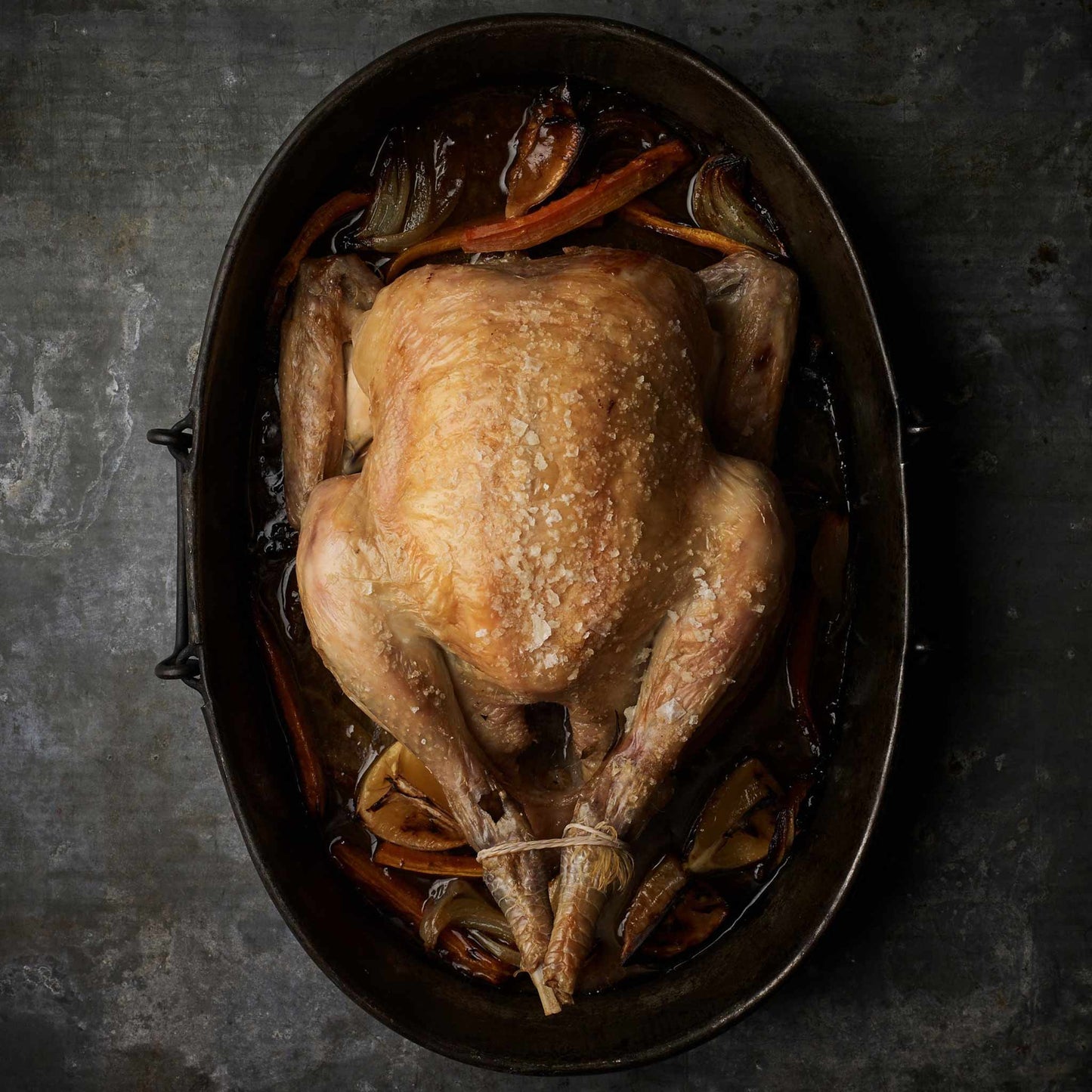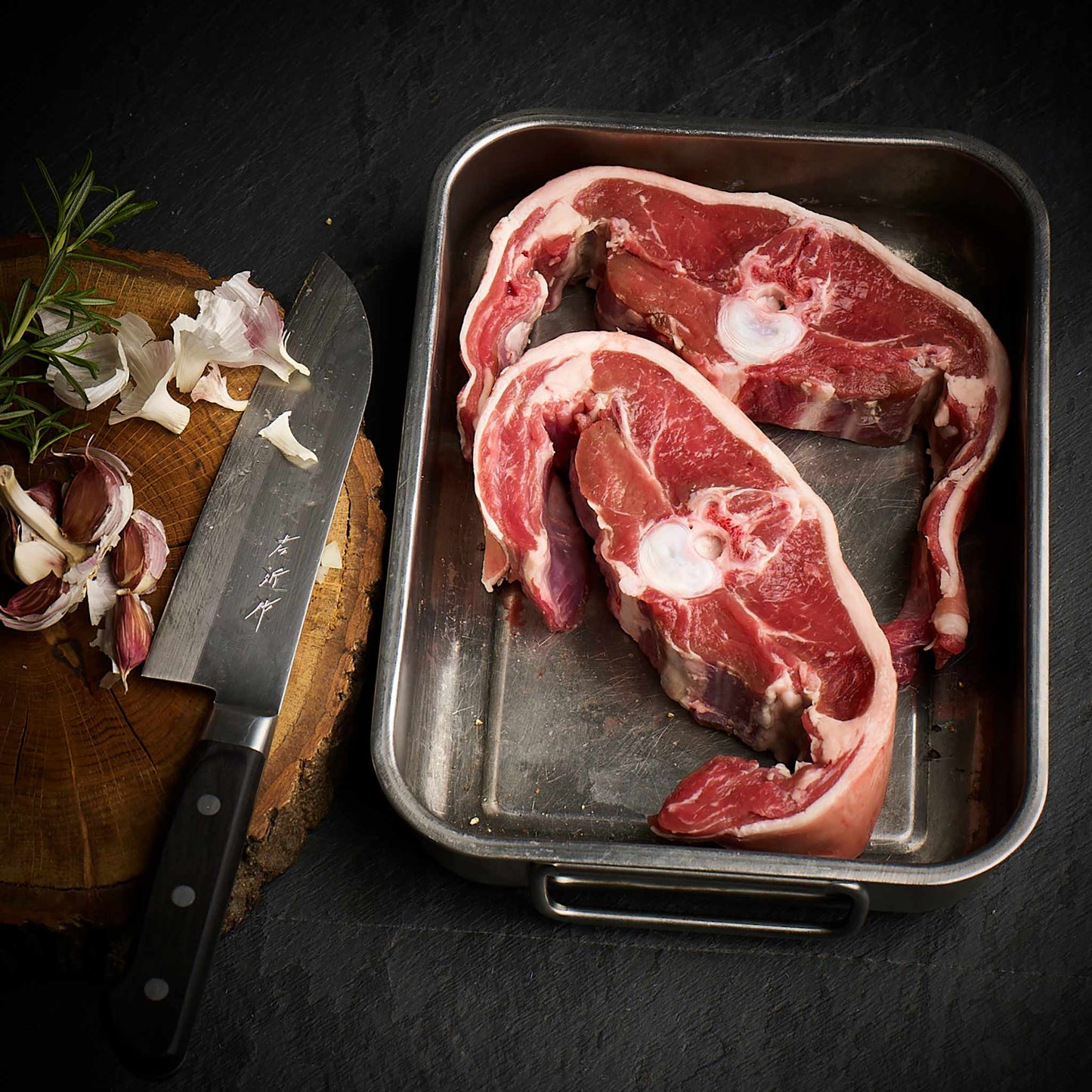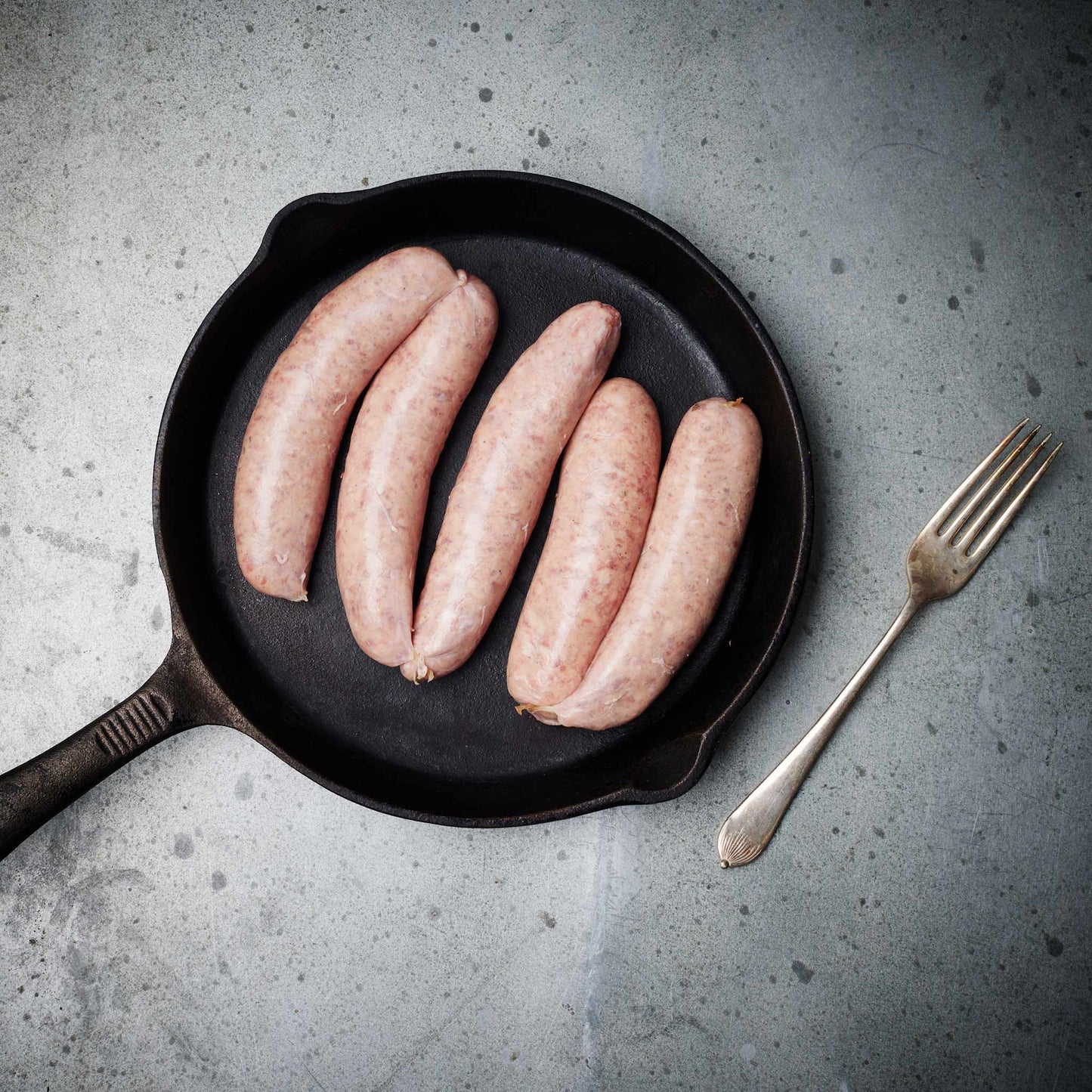We source our chicken from one farm in Leicestershire. The farm is Pasture for Life certified and rears truly free range, outdoor birds.

More than once it's been suggested that we run our campaign and just leave Veganuary alone, after all, they're not harming anyone are they? Well actually, yes, they are.
Veganuary started in the UK in 2014 and it's aim is nothing short of a vegan world which we believe is not possible. They probably haven't even considered other problems such as how we would feed the 12 million pet cats in the UK before we get into how to grow crops without animal manure. Our soil systems would collapse within decades trying to produce all the extra crops we would need to feed ourselves, having to rely on chemical inputs which are by definition not sustainable.
This is the third year we've run the Regenuary campaign and the team at Veganuary HQ have become aware of that...
What the Veganuary team says about our campaign
Veganuary's Toni Vernelli said its focus remains on converting people to plant-based living. “Obviously I believe in some of what [Regenuary] is promoting – meat reduction. We can’t continue to consume animal products at the rate we are,” she says. “But I think some things are misleading. The local angle focuses on food miles, but most emissions come from the animals and their feed – that’s what harms the environment.”
We think that Toni is missing the point of Regenuary, and by a very long shot.
We've never suggested eating 'less meat', just to source it better and eat more of the animal. Regenuary — and really all that The Ethical Butcher — is all about eating great meat as long as regeneratively produced.
Secondly, assuming in her statement that she's referring to cattle, a central tenant to regenerative agriculture is NOT to feed grazing animals any supplemental feed. And if the production of this feed is so damaging to the environment, isn't that what Toni wants the world to eat through Veganuary?
It's all a bit confusing...
So, let's now consider the claim that 'most of the emissions come from the animals' and compare this to the fossil fuels required to move plant based protein around the world, or specifically to the UK in the middle of winter.
Yes, cows burp methane and carbon dioxide, both greenhouse gasses, but these are a part of a closed loop cycle and this cycle is roughly 9 years. This is because every gram of carbon a grass-fed cow burps was created recently by photosynthesis — the grass and other plants converting atmospheric greenhouse gasses into carbohydrates that the cow eats.
Even the methane which is the stronger greenhouse gas has a half-life in the atmosphere of 9 years, after which it is broken down into CO2 and H2O and the cycle begins again.
What this means is that as long as the numbers of beef cattle in the UK remain stable, they simply cannot be responsible for a net gain in atmospheric greenhouse gasses. In fact, the numbers of cattle in the UK has declined since 2005.
Why the comparison to fossil fuels?
In reality, it makes no sense to compare the emissions from a closed loop of grazing animals to fossil fuel usage. We've written about this in greater detail before but in short, fossil fuel usage is too a closed loop of carbon. The emissions that come from an exhaust pipe also started in the atmosphere and were taken up by photosynthesis. The difference is that this last occurred 120,000,000 years ago, not 9.
Why does Veganuary ignore regenerative agriculture?
This is indeed puzzling. Regenerative agriculture is defined as:
Regenerative agriculture is a conservation and rehabilitation approach to food and farming systems. It focuses on topsoil regeneration, increasing biodiversity improving the water cycle, enhancing ecosystem services, supporting biosequestration, increasing resilience to climate change, and strengthening the health and vitality of farm soil.
Regenerative agriculture is not a specific practice itself. Rather, proponents of regenerative agriculture use a variety of sustainable agriculture techniques in combination. Practices include recycling as much farm waste as possible and adding composted material from sources outside the farm. Regenerative agriculture on small farms and gardens is often based on philosophies like permaculture, agroecology, agroforestry, restoration ecology, keyline design, and holistic management. Large farms tend to be less philosophy driven and often use "no-till" and/or "reduced till" practices.
Makes sense, right? You'll note that this definition isn't restricted to animal farming: it goes across the board to include all types of plant-based agriculture and yet after a careful look over Veganuary's website, there was not a single mention of sourcing food produced like this. If the goal of Veganuary is saving the planet, how is this possible?
In fact, we couldn't even find any information on their website to suggest how to source your food with a lower impact as long it contains no animal bits. For a movement that claims to be better for the planet, this is frankly staggering.
But is eating vegan actually healthier?
A great piece of writing on Veganuary is here from Zoe Harcombe and she summarises by saying:
"I was pondering the fact that little harm can be done doing Veganuary for just a month and wondering how to close this post when I happened to catch an interview on BBC breakfast on 4th January 2020. The co-founders of Veganuary were being interviewed. One was Jane Land (who has been vegan for seven years). The other was Ursula Philpot – a dietitian. Philpot was asked about the health aspect of doing Veganuary and her reply included these words: “Just doing it for a month, you’re not going to run into problems really – even if you eat a pretty poor diet. But, longer than that, it has to be fairly well planned… There are gaps in the diet – things like iron, B12, vitamin D, omega-3 fats.”
And there you have it. From one of the founders of the Veganuary campaign. Replace the word planned with supplemented and we have agreement.
When it comes to the debate around Veganuary versus Regenuary, only one movement is better for the planet and better for you.




